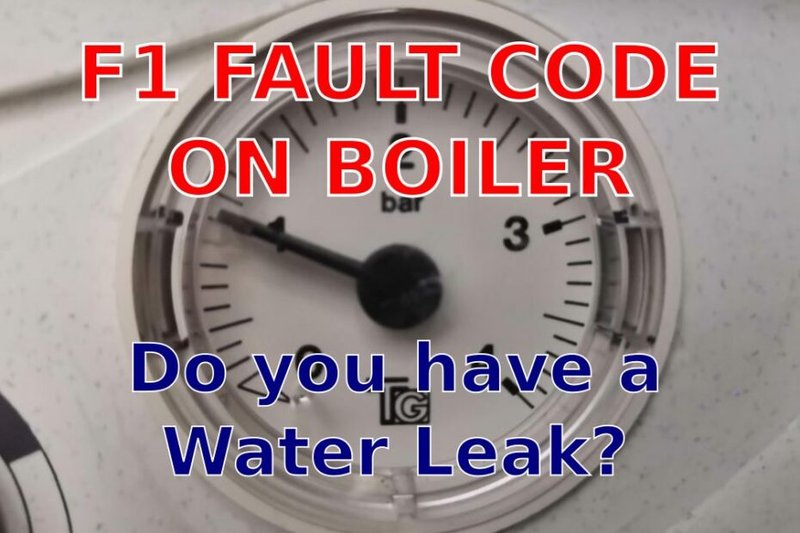
Here’s the scoop. The F1 error code on a Bosch water heater is essentially the device’s way of letting you know something’s off, specifically related to the heater’s temperature sensor. Think of it like a car’s check engine light; it’s alerting you to a potential issue but doesn’t always mean immediate danger. But, as with any error message, understanding its cause and implications is crucial to ensuring both your safety and the longevity of your appliance.
Understanding the F1 Error Code
When your Bosch water heater displays the F1 error code, it’s signaling an issue with the temperature sensor that’s designed to keep everything operating smoothly. Imagine the temperature sensor as a diligent lifeguard, always on the lookout for any risky spikes or drops in water temperature. If something feels off, it raises the alarm, triggering the F1 error to prompt you to take action.
The temperature sensor is a small yet powerful component within your heater. It constantly monitors the water temperature to ensure it stays within a safe and efficient range. If for any reason this sensor detects something out of the ordinary, such as a malfunction or connection issue, it triggers the F1 code. It’s as if the sensor is saying, “Hey, something’s not right here. Can we check it out?”
You might be wondering, “Is this something I can fix myself?” Well, the answer depends on your comfort level with handling basic home repairs and whether you have the necessary tools. For most beginners, contacting a professional is recommended. They can accurately assess the situation and make any needed repairs without risking further damage to the heater or your home.
Common Causes of the F1 Error
Identifying the reasons behind this error code is the next step, and thankfully, it’s not rocket science. One of the usual suspects is a faulty temperature sensor itself. Over time, these sensors can wear out, much like tires on your car, and may send inaccurate readings to the heater’s main system.
Another possibility is a loose or corroded connection inside the heater. Imagine trying to listen to your favorite song with a damaged earphone wire – the connection drops in and out, right? Similarly, if the connections to the temperature sensor are not tight or have corroded, they won’t relay accurate temperature readings to the system.
Sometimes, external factors can also play a role. If your water heater is subject to extreme weather conditions or fluctuations, it might affect its performance. It’s a bit like how our cars sometimes refuse to start on a particularly cold morning – they don’t like the drastic changes either.
If the error persists even after checking these aspects, it’s a strong indication that a licensed technician should take a look. While some causes might seem minor, they can lead to bigger problems down the line if not addressed properly.
Is It Safe to Keep Using the Heater?
Now, let’s tackle the big question: Is it safe to continue using your Bosch water heater with the F1 error code displayed? The short answer is, it’s generally not advisable. Why? Because running a heater with a potential fault is like driving a car with the engine light on – it might work for a while, but it’s a gamble.
A malfunctioning temperature sensor can lead to improper heating of water. This means you could either be exposed to unexpectedly cold showers or, worse, scalding hot water, both of which aren’t ideal or safe. Safety should always be a priority, and continuing to use a faulty heater can pose risks of injury or further damage to the unit.
Furthermore, ignoring the F1 error can potentially void any warranty you have left on the heater. Manufacturers typically recommend addressing issues promptly to keep your warranty valid. So, to play it safe, it’s best to halt usage until a professional gives the all-clear.
Next Steps and Prevention
So, what should you do once you’ve spotted that pesky F1 error code? First, consider turning off the water heater to prevent any further complications. This is a great moment to call a qualified technician who specializes in Bosch water heaters. They’ll have the expertise to diagnose and address the issue accurately.
While waiting for a professional, it doesn’t hurt to do a simple visual inspection. Look for any obvious signs of wear and tear or loose connections. However, remember to keep your safety in mind and avoid tampering with internal components if you’re not sure what you’re doing.
To prevent future occurrences of this error, regular maintenance is key. Scheduling an annual check-up for your water heater can help catch potential problems early on. Just like you’d take your car in for routine service, your water heater benefits from the same care. Ensuring that it’s in tip-top shape can save you from unexpected cold showers and costly repairs down the road.
In conclusion, while the F1 error on your Bosch water heater might seem daunting initially, it’s manageable with the right information and action. Prioritize your safety and the heater’s longevity by addressing the issue promptly with professional help, and consider regular maintenance to keep everything running smoothly.
